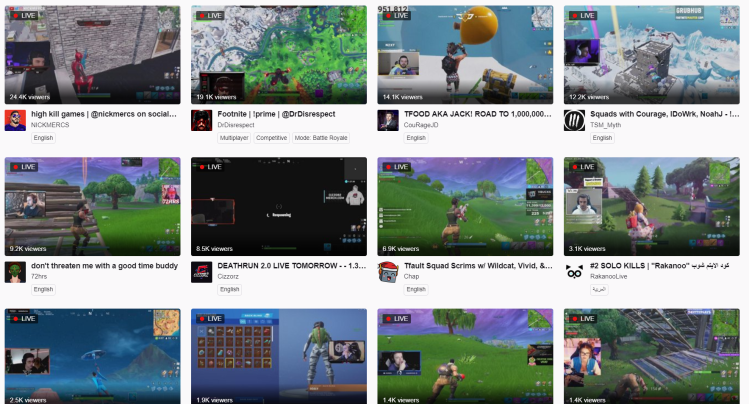It’s tough for small studios to get attention for their games. Even as someone who plays and thinks about games a lot, I don’t make a lot of space in my brain for new ones from unknown studios. The best way to get my interest is to get my friends on Discord playing a game. That’s not easy to do. Alternatively, if you can’t manage that, I do occasionally pick up a new game because I see someone streaming it.
Epic Games can’t pay your friends to market a game to you (yet). But it has set up a program that pays content creators for sending their audience to install a game on Epic Games Store. The company built this system for Fortnite. That battle royale shooter had one of the most aggressive and successful influencer marketing campaigns of all time. And now Epic has opened those tools to every studio on its store.
“I believe influencers are one of the main game discovery engines in the industry right now,” Epic Games Store manager Sergey Galyonkin explained on Twitter. “Friends are the most important one, of course. In-store discovery, while important, is nowhere as important as those two.”
Influencer marketing is effective, but out of reach for indies
The problem with influencers is that it’s a complicated and expensive marketing strategy.
June 5th: The AI Audit in NYC
Join us next week in NYC to engage with top executive leaders, delving into strategies for auditing AI models to ensure fairness, optimal performance, and ethical compliance across diverse organizations. Secure your attendance for this exclusive invite-only event.
Many of the biggest Twitch and YouTube stars want big, upfront payments. Developers also need a deep understanding of an influencer’s audience. If the content creator usually plays FIFA Ultimate Team, their audience may not care about an indie platformer. And you can’t just make a deal with one or two creators. You need to blanket Twitch and YouTube to make a dent.
“Right now a significant part of marketing budgets of big games is allocated to pay influencers,” Galyonkin wrote. “Those are one-off deals. I think having a way for influencers to be able to stream any game and make money without relying solely on big publishers would be awesome.”
And that’s exactly what Epic Games is enabling with its “Support-A-Creator” program.
Putting that better revenue split to good use
With Support-A-Creator, developers can choose to share a cut of their revenues with creators who direct traffic to a game. Studios hand out special Epic Games Store links, and influencers can direct viewers to buy a game through that link.
If a viewer makes a purchase, Epic is paying influencers a 5 percent cut. But that is not going to last forever. Eventually, Epic is going to hand the power over to developers to give a cut of the revenue to influencers. Studios can choose however much they want, and that money is on top of the 12 percent cut that Epic games for each sale.
And that’s where Support-A-Creator is different from some similar programs on other stores. Twitch and Amazon enable streamers to get a cut of the revenue for games that viewers purchase through the influencer’s page. But the Amazon digital store is still on a 30/70 revenue split. Also, on the Amazon store, developers and content creators don’t have a direct relationship. Instead, Amazon sets everything as a flat rate.
“Our goal is to empower smaller devs to have the same access to creators that only big publishers right now can afford,” Galyonkin wrote. “It’s not in any way mandatory, we’re just leveling the playing field, and giving devs the tools.”


